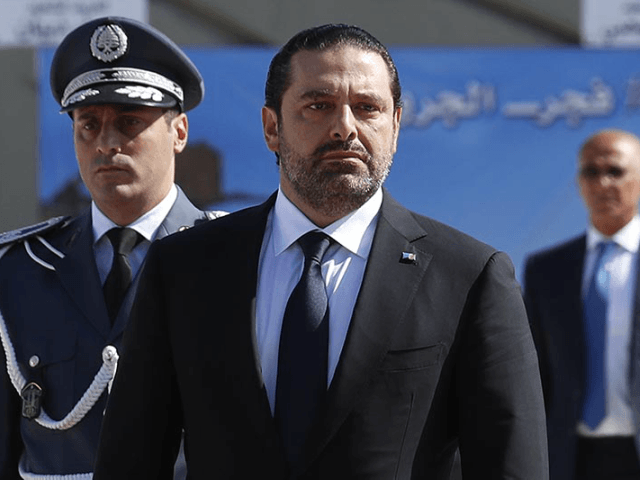PARIS (AFP) — Lebanese Prime Minister Saad Hariri confirmed he would return to Lebanon in time for Independence Day celebrations Wednesday, as political turmoil rocks his country following his resignation announcement in Saudi Arabia.
“I will return to Beirut in the coming days,” Hariri said after crisis talks in Paris with French President Emmanuel Macron on Saturday.
“I will participate in the celebrations for our independence and it is there that I will make known my position on all the issues after meeting with the president of our republic, general Michel Aoun.”
Aoun — who has refused to accept Hariri’s resignation while he remains abroad — had said earlier Saturday that the premier would return in time for Independence Day.
Hariri arrived in Paris on Saturday at the invitation of Macron, who is attempting to help broker a solution to a political crisis that has raised fears over Lebanon’s fragile democracy.
Macron greeted Hariri warmly as he arrived for talks at the Elysee Palace hours after flying in from Riyadh with his wife.
Their eldest son Houssam was due to join the couple for lunch with Macron at the palace.
But the Hariris arrived in Paris without their younger children — Loulwa and Abdelaziz, born in 2001 and 2005 — who are staying in Riyadh “for their school exams,” a source close to the premier said.
“Hariri does not want to mix his children up in this affair,” the source said.
Hariri, who along with Saudi officials has repeatedly denied that he was being held under de facto house arrest in Riyadh, hammered home the message just before his departure.
“To say that I am held up in Saudi Arabia and not allowed to leave the country is a lie,” he said in a Twitter post.
A source close to Hariri said the premier had held an “excellent, fruitful and constructive” meeting with the powerful Saudi Crown Prince Mohammed Bin Salman before he left.
Hariri, a dual Saudi citizen who has previously enjoyed Riyadh’s backing, announced his resignation on November 4.
He said he feared for his life, accusing Iran and its powerful Lebanese ally Hezbollah of destabilizing his country.
But Hariri’s failure to return from Saudi Arabia prompted claims he was essentially being held hostage there, including from Lebanon’s president, who refused to accept his resignation from abroad.
Hariri’s resignation was widely seen as an escalation of the battle for influence between Sunni Saudi Arabia and Shiite Iran, regional arch-rivals which back opposing sides in the conflicts in Syria and Yemen.
Ahead of Hariri’s departure, Aoun — an ally of Hezbollah — welcomed the trip to Paris, expressing hope that it was the “start of a solution.”

COMMENTS
Please let us know if you're having issues with commenting.